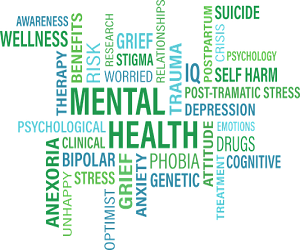

Navigating Love And Connection In The 21st Century

The digital age has ushered in a profound transformation in how we form, maintain, and navigate our relationships. The advent of the internet and the proliferation of digital devices have significantly reshaped the dynamics of modern love and connection. In this article, we'll explore the concept of digital age relationships, examining the impact of technology and the evolving landscape of human connections in the 21st century.
1. The Role Of Technology In Relationships
Technology has become deeply integrated into our daily lives, and this is particularly evident in the realm of relationships. Social media, messaging apps, and video calls have become essential tools for maintaining connections, especially in long-distance or cross-cultural relationships.
2. Geographical Boundaries Blurred
One of the most striking effects of the digital age on relationships is the blurring of geographical boundaries. Long-distance relationships have become more manageable, thanks to video calls, messaging apps, and online platforms designed to foster connections regardless of physical distance.
3. The Rise Of Online Dating
Online dating has gained tremendous popularity as a way to meet potential partners. It has expanded the dating pool and offers the convenience of connecting with individuals who share your interests, values, and life goals. Compatibility algorithms help match individuals more effectively.
4. Virtual Dating Experiences
The digital age has given rise to virtual dating experiences. Video calls and online platforms enable couples to have virtual dates, fostering a sense of intimacy even when meeting in person is not possible. These experiences add depth to relationships and enhance emotional connections.
5. Social Media And Relationships
Social media platforms have played a significant role in shaping how we interact and share our lives with others. They offer a means of staying connected, sharing experiences, and expressing affection, whether it's through posts, messages, or video calls.
6. Challenges And Pitfalls
While technology has brought numerous advantages to relationships, it has also presented challenges. Maintaining the right balance between digital interactions and in-person connection can be tricky. Miscommunication, misunderstanding, and the potential for jealousy or insecurity are pitfalls to navigate in the digital age.
7. Rebuilding Trust Online
For couples who have experienced breaches of trust, rebuilding trust in the digital age can be a unique challenge. Effective communication, transparency, and a commitment to demonstrating trustworthiness are essential for overcoming these hurdles.
8. The Future Of Digital Age Relationships
As technology continues to evolve, digital age relationships will also undergo changes. Virtual reality, augmented reality, and emerging technologies will likely offer new ways to connect and share experiences in the future.
Digital age relationships are a reflection of the evolving dynamics in our interconnected world. Technology has reshaped the ways in which we form connections, bridging geographical divides and offering tools to maintain emotional bonds. While the digital age presents challenges, it also provides opportunities for personal growth, deepening connections, and finding love in unexpected places. As we move forward in this digital era, the key to successful digital age relationships lies in balancing technology with authentic, meaningful human connection.
Weathering Life's Storms Together
 Defining Resilient Love
Defining Resilient Love
Resilient love is a love that persists and flourishes despite obstacles, hardships, and changes. It goes beyond the initial excitement of a relationship and survives through the inevitable trials and tribulations that life presents. It's about facing adversity as a team, growing together, and emerging stronger.
Characteristics Of Resilient Love
Mutual Support: Resilient love involves partners who provide unwavering support to one another. During tough times, they lean on each other, offering strength and encouragement.
Effective Communication: It's built on open and honest communication. Partners in resilient love can express their needs, concerns, and emotions without judgment or fear.
Flexibility And Adaptability: Resilient love is adaptable and flexible. It allows partners to adjust to changing circumstances and embrace new phases of life without losing their bond.
Forgiveness: Resilient love often includes a willingness to forgive and move forward. Mistakes and conflicts are viewed as opportunities for growth and learning.
Empathy And Compassion: Partners in resilient love understand each other's experiences and perspectives. They show compassion and empathy, even when they don't fully comprehend the other's point of view.
Shared Values: Resilient love is often grounded in shared values and principles. These common beliefs provide a strong foundation for the relationship.
Why Resilient Love Matters
Longevity: Resilient love is more likely to result in long-lasting, meaningful relationships that endure the test of time.
Emotional Well-Being: It fosters emotional well-being by providing a consistent source of support and connection during life's ups and downs.
Personal Growth: Resilient love challenges individuals to grow and develop. Facing adversity together can lead to self-improvement and a deeper understanding of oneself and one's partner.
Unleashing Your Full Potential
 Undermining Confidence: Self-doubt erodes your self-confidence, making you second-guess your abilities and decisions.
Undermining Confidence: Self-doubt erodes your self-confidence, making you second-guess your abilities and decisions.
Procrastination: It can lead to procrastination as you delay taking action due to fear of failure or making mistakes.
Imposter Syndrome: Self-doubt often contributes to imposter syndrome, where you feel like a fraud despite your accomplishments.
Missed Opportunities: It can prevent you from seizing opportunities and pursuing your dreams.
Negative Self-Talk: Persistent self-doubt can lead to a cycle of negative self-talk and self-criticism, which can have detrimental effects on your mental and emotional well-being.
Conquering Self-Doubt
Awareness: The first step in conquering self-doubt is to become aware of it. Pay attention to your thoughts and feelings when it arises, and acknowledge that it's a normal part of the human experience.
Challenge Negative Thoughts: When self-doubt strikes, question the validity of your negative thoughts. Ask yourself if they are based on evidence or irrational fear. Try to reframe these thoughts in a more positive and constructive way.
Nurturing Your Inner Self
 Understanding Emotional Healing
Understanding Emotional Healing
Emotional healing is the process of acknowledging, addressing, and resolving emotional pain, trauma, and distress. It involves recognizing and processing feelings, fostering self-compassion, and learning to manage and transform negative emotions into positive growth opportunities. This journey of healing is deeply personal and often involves revisiting past experiences to find closure and move forward.
The Significance Of Emotional Healing
Improved Mental Health: Emotional healing plays a vital role in maintaining and improving mental health. Unaddressed emotional wounds can contribute to conditions like anxiety, depression, and post-traumatic stress disorder.
Enhanced Coping Skills: As you engage in the process of emotional healing, you acquire valuable coping skills that enable you to navigate challenges and stress more effectively.
Healthy Relationships: Emotional healing fosters self-awareness and emotional intelligence, which are essential for building and maintaining healthy relationships. When you're emotionally healed, you're better equipped to communicate, empathize, and connect with others.
Greater Resilience: Emotional healing enhances resilience, helping you bounce back from adversity and setbacks. Resilience is a key factor in achieving personal growth.
Practical Steps For Emotional Healing
Self-Reflection: Begin by self-reflecting and identifying areas of emotional pain and distress. Take time to recognize and name the emotions you're experiencing.
Seek Support: You don't have to go through the process of emotional healing alone. Seek support from friends, family, or a mental health professional who can provide guidance and empathy.
Mindfulness And Meditation: Mindfulness practices and meditation can help you stay present in the moment and observe your emotions without judgment. These techniques can facilitate emotional healing.
Nurturing Your Inner Landscape
 The Significance Of Emotional Growth
The Significance Of Emotional Growth
Improved Mental Health: Emotional growth contributes to better mental health by promoting self-awareness and emotional regulation. It can lead to reduced stress, anxiety, and depression.
Enhanced Relationships: Emotionally growth individuals are better equipped to navigate relationships. They can communicate more effectively, empathize with others, and understand the emotions and perspectives of those around them.
Personal Development: Emotional growth challenges individuals to become their best selves by working through emotional difficulties, gaining insight into their reactions, and fostering personal growth.
Increased Resilience: Emotional growth enhances resilience by teaching individuals how to adapt to life's challenges, bounce back from setbacks, and face adversity with greater strength.
Cultivating Emotional Growth
Self-Reflection: Begin by exploring your emotional landscape. Reflect on your past experiences, how they've shaped you, and the patterns in your emotional responses.
Mindfulness And Meditation: These practices can help you become more attuned to your thoughts, feelings, and bodily sensations. They promote self-awareness and emotional regulation.
The Journey To Self-Worth
 The Importance Of Self-Worth
The Importance Of Self-Worth
Understanding your self-worth is crucial for several reasons. Firstly, it affects your mental and emotional well-being. Low self-worth can lead to anxiety, depression, and an overall negative outlook on life. Secondly, it plays a significant role in your relationships. When you value yourself, you're more likely to attract healthy, loving connections. Additionally, self-worth is a driving force behind personal growth and success. People with a strong sense of self-worth are often more resilient and motivated to pursue their goals.
The Journey To Self-Worth
Discovering your self-worth is a journey, not a destination. It involves self-reflection, self-compassion, and continuous growth. Here are some steps to help you embark on this transformative journey:
1. Self-Reflection: Take time to explore your beliefs about yourself. Identify any negative self-talk or self-limiting beliefs that may be holding you back. Question the origin of these beliefs and challenge their validity.
2. Self-Acceptance: Embrace your imperfections and quirks. Recognize that no one is perfect, and imperfection is a part of the human experience. Accepting your flaws is a vital step toward self-worth.
3. Set Healthy Boundaries: Learning to say "no" when necessary and protecting your time and energy is crucial for self-worth. Setting boundaries demonstrates that you value yourself and your needs.
Navigating The Complex Terrain Of Age-Gap Relationships
 One of the most common concerns surrounding age-gap relationships is the potential power imbalance between partners. The partner with greater life experience may exert undue influence over the younger one. To address this, communication becomes paramount. Both individuals must openly discuss their desires, boundaries, and expectations to ensure that the relationship remains healthy and equitable. A strong foundation of trust and respect is key to combating any perceived imbalances.
One of the most common concerns surrounding age-gap relationships is the potential power imbalance between partners. The partner with greater life experience may exert undue influence over the younger one. To address this, communication becomes paramount. Both individuals must openly discuss their desires, boundaries, and expectations to ensure that the relationship remains healthy and equitable. A strong foundation of trust and respect is key to combating any perceived imbalances.
Moreover, age-gap relationships may be met with skepticism or even criticism from society. It's essential for couples in these relationships to develop a thick skin and maintain unwavering confidence in their love for one another. Overcoming societal judgments can be challenging, but it's crucial to focus on the happiness and compatibility of the couple rather than the opinions of others.
Age-gap relationships can offer unique benefits as well. The differences in life experiences, perspectives, and knowledge that each partner brings to the relationship can foster personal growth and learning. These relationships can provide an opportunity for partners to explore new aspects of life and broaden their horizons.
Furthermore, age-gap relationships are often characterized by a more profound sense of emotional connection and understanding. The older partner may offer stability, wisdom, and support, while the younger one can bring freshness, energy, and a new outlook on life.
Embracing The Beauty
 Conversely, the younger partner can inject vitality, enthusiasm, and a fresh perspective into the relationship. This intergenerational dynamic often leads to personal growth and the broadening of horizons for both partners. The blending of different life stages and experiences can create a unique synergy that can be highly enriching.
Conversely, the younger partner can inject vitality, enthusiasm, and a fresh perspective into the relationship. This intergenerational dynamic often leads to personal growth and the broadening of horizons for both partners. The blending of different life stages and experiences can create a unique synergy that can be highly enriching.
However, these relationships are not without their challenges. One common issue is the potential for differing life goals and priorities. The older partner may be contemplating retirement while the younger one is focused on career advancement and personal development. These differences can create tensions that need to be addressed through open and honest communication.
Society's attitudes toward age-gap relationships can also be a source of strain. Such unions may be met with skepticism or even prejudice. The younger partner, in particular, may face unwarranted criticism, with people often questioning their motivations. The key to overcoming external judgment is a strong foundation of trust and mutual respect between the couple.
Legal considerations are another facet of older-younger relationships. Age of consent laws and other legal matters can vary from one place to another. Ensuring that the relationship complies with local regulations and safeguards the rights of both partners is essential.
Exploring The Beauty And Complexity
 One of the most significant advantages of intergenerational relationships is the exchange of wisdom and knowledge. The older generation typically brings decades of life experience, while the younger generation offers fresh perspectives and insights. These interactions can lead to valuable learning experiences, as each generation benefits from the other's unique perspective. Older individuals can share their life lessons, and younger ones can offer a glimpse into contemporary issues, technology, and evolving societal norms.
One of the most significant advantages of intergenerational relationships is the exchange of wisdom and knowledge. The older generation typically brings decades of life experience, while the younger generation offers fresh perspectives and insights. These interactions can lead to valuable learning experiences, as each generation benefits from the other's unique perspective. Older individuals can share their life lessons, and younger ones can offer a glimpse into contemporary issues, technology, and evolving societal norms.
Mentorship is a central theme in many intergenerational relationships. This can take various forms, such as a seasoned professional mentoring a young colleague, or a senior community member guiding a teenager through life's challenges. Mentorship often results in personal growth, improved skills, and enhanced self-confidence for the younger person, while the mentor may find renewed purpose and satisfaction in passing on their knowledge.
Intergenerational relationships also play a crucial role in preserving and sharing cultural heritage and traditions. Grandparents, for example, often impart stories, customs, and family histories to their grandchildren, keeping these traditions alive for future generations. These connections are a testament to the significance of preserving cultural identity and continuity through time.
The emotional support that intergenerational relationships provide is another essential element.